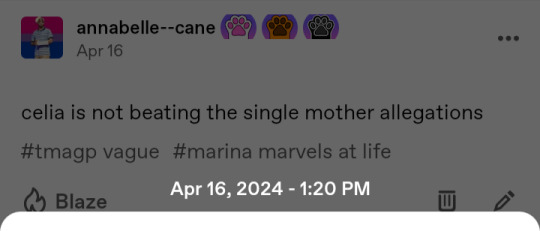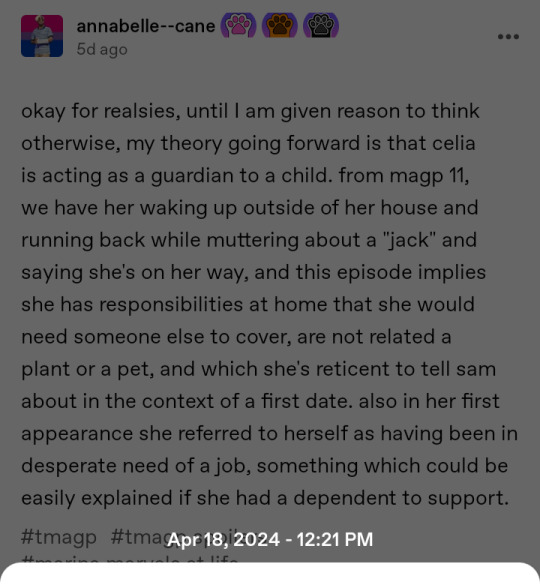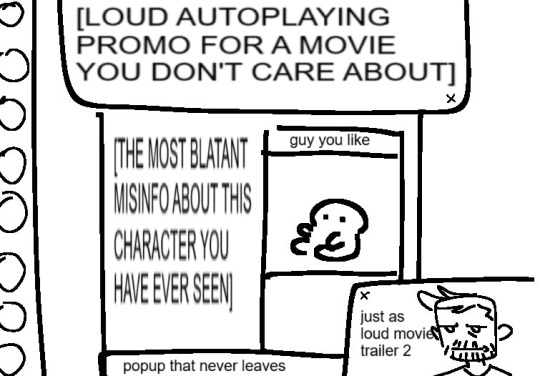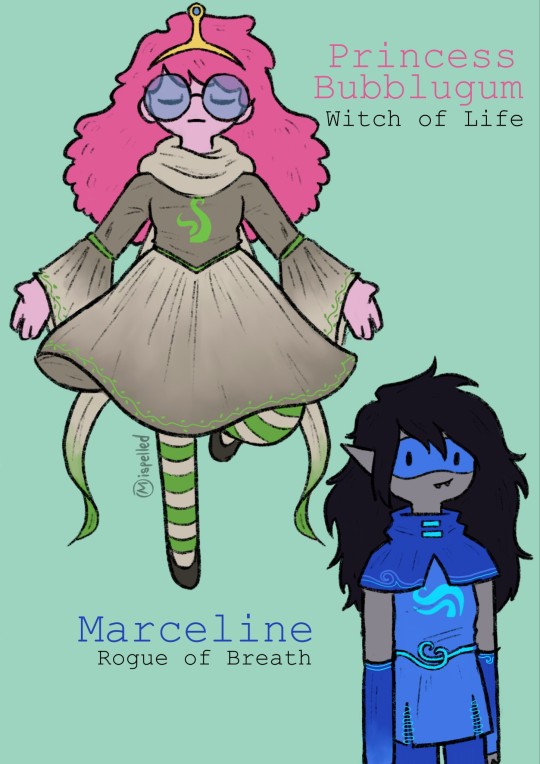Video
252K notes
·
View notes
Text
One of my biggest nitpicks in fiction concerns the feeding of babies. Mothers dying during/shortly after childbirth or the baby being separated form the mother shortly after birth is pretty common in fiction. It is/was also common enough in real life, which is why I think a lot of writers/readers don't think too hard about this. however. Historically, the only reason the vast majority of babies survived being separated from their mother was because there was at least one other woman around to breastfeed them. Before modern formula, yes, people did use other substitutes, but they were rarely, if ever, nutritionally sufficient.
Newborns can't eat adult food. They can't really survive on animal milk. If your story takes place in a world before/without formula, a baby separated from its mother is going to either be nursed by someone else, or starve.
It doesn't have to be a huge plot point, but idk at least don't explicitly describe the situation as excluding the possibility of a wetnurse. "The father or the great grandmother or the neighbor man or the older sibling took and raised the baby completely alone in a cave for a year." Nope. That baby is dead I'm sorry. "The baby was kidnapped shortly after birth by a wizard and hidden away in a secret tower" um quick question was the wizard lactating? "The mother refused to see or touch her child after birth so the baby was left to the care of the ailing grandfather" the grandfather who made the necessary arrangements with women in the neighborhood, right? right? OR THAT GREAT OFFENDER "A newborn baby was left on the doorstep and they brought it in and took care of it no issues" What Are You Going to Feed That Baby. Hello?
Like. It's not impossible, but arrangements are going to have to be made. There are some logistics.
37K notes
·
View notes
Text
One of my biggest nitpicks in fiction concerns the feeding of babies. Mothers dying during/shortly after childbirth or the baby being separated form the mother shortly after birth is pretty common in fiction. It is/was also common enough in real life, which is why I think a lot of writers/readers don't think too hard about this. however. Historically, the only reason the vast majority of babies survived being separated from their mother was because there was at least one other woman around to breastfeed them. Before modern formula, yes, people did use other substitutes, but they were rarely, if ever, nutritionally sufficient.
Newborns can't eat adult food. They can't really survive on animal milk. If your story takes place in a world before/without formula, a baby separated from its mother is going to either be nursed by someone else, or starve.
It doesn't have to be a huge plot point, but idk at least don't explicitly describe the situation as excluding the possibility of a wetnurse. "The father or the great grandmother or the neighbor man or the older sibling took and raised the baby completely alone in a cave for a year." Nope. That baby is dead I'm sorry. "The baby was kidnapped shortly after birth by a wizard and hidden away in a secret tower" um quick question was the wizard lactating? "The mother refused to see or touch her child after birth so the baby was left to the care of the ailing grandfather" the grandfather who made the necessary arrangements with women in the neighborhood, right? right? OR THAT GREAT OFFENDER "A newborn baby was left on the doorstep and they brought it in and took care of it no issues" What Are You Going to Feed That Baby. Hello?
Like. It's not impossible, but arrangements are going to have to be made. There are some logistics.
37K notes
·
View notes
Text



I'm fucking hollering. apollo socked me square in the nose with this one.
278 notes
·
View notes
Text
i can never write a soulmates au cause i very quickly stop thinking about romance and start thinking about the sociological implications of a world where soulmates are a confirmed verifiable thing
9K notes
·
View notes
Text
Emily having a full conversation with a rat she thinks is Corvo, only for Corvo to enter the room (he's human) (the rat was just a random normal rat) (Emily has just spent ten minutes monologuing at an increasingly confused and frightened rat about her day)
44 notes
·
View notes
Text
I don't care what your sexuality is if we start doing kiss marry kill or smash or pass for people of a gender you're not actually attracted to you can have some gosh darn imagination. Make a choice. Pick. Imagine. Open your mind to creativity.
3K notes
·
View notes
Text
One of the most dangerous things in the world is not being able to say no to people because you don't want to upset them or dissapoint them. This will completely ruin your life in every way possible, at work, in your private life, your sex life and your friendships. It's a way of removing your own consent in your own decisions and go against your wishes, it is always a crime against yourself. Let yourself have a say. Upsetting people is better than traumatizing yourself.
87K notes
·
View notes
Text
One of the most dangerous things in the world is not being able to say no to people because you don't want to upset them or dissapoint them. This will completely ruin your life in every way possible, at work, in your private life, your sex life and your friendships. It's a way of removing your own consent in your own decisions and go against your wishes, it is always a crime against yourself. Let yourself have a say. Upsetting people is better than traumatizing yourself.
87K notes
·
View notes
Text
One of the most dangerous things in the world is not being able to say no to people because you don't want to upset them or dissapoint them. This will completely ruin your life in every way possible, at work, in your private life, your sex life and your friendships. It's a way of removing your own consent in your own decisions and go against your wishes, it is always a crime against yourself. Let yourself have a say. Upsetting people is better than traumatizing yourself.
87K notes
·
View notes
Text
One of the most dangerous things in the world is not being able to say no to people because you don't want to upset them or dissapoint them. This will completely ruin your life in every way possible, at work, in your private life, your sex life and your friendships. It's a way of removing your own consent in your own decisions and go against your wishes, it is always a crime against yourself. Let yourself have a say. Upsetting people is better than traumatizing yourself.
87K notes
·
View notes
Text
If someone messages you on Discord claiming they accidentally reported you, it’s a scam. You don’t need to pay anything either if asked to verify things. Just block the sender and don’t click anything your sent. People are actively falling for this very common scam on a daily basis.
Steam also has the exact same scam format.
309 notes
·
View notes
Text
And the Heavens Wept
Gather around my children and you shall hear of the most terrible, most implacable, most improbable friends ever met by our people. They came from the third planet of a tiny system, surrounded by desolate space. Not one sentient species for hundreds of lightyears, and they managed to propel themselves into space.
We watched from afar as they developed slowly. We watched as they warred among themselves, brutal and savage. We watched as they rendered regions of their planet uninhabitable to themselves, a hardy species able to adapt to even the most hostile of environments. We watched as suddenly and without warning they united under four banners, the rest falling by the wayside. We watched as they expanded into what we had begun to use as a buffer zone, to allow these humans to burn themselves out in.
But they did not burn themselves out. Despite their warring among themselves. Harsh people. Humankind is a race of warriors, do not be fooled by the eloquence of their diplomats. In their own words, “All diplomacy is a continuation of war by other means”. Their greatest artists and philosophers were born from blood and conflict. I had the privilege once to view a painting by one Pablo Picasso, entitled Guernica. It was a savage piece, with not a drop of color. It showed the horrors of war, and the irony of it all was that the painting hung in the office of one of humankind’s generals.
It was sudden, when they burst from the containment zone. When they realized they were not alone. And we, with heavy hearts, prepared to fight them bitterly and to the last. Imagine then, our surprise when humanity embraced us among the stars as long lost brothers. They were overjoyed to discover they were not alone in the darkness. Despite their brutal and warlike culture, despite their glorification of death and violence, their people do not seek out combat. An ancient general of theirs once put it thusly “Although a soldier by profession, I have never felt any sort of fondness for war, and I have never advocated it, except as a means of peace”.
For centuries humanity worked to better itself. They unified under a single Interstellar Empire, the Empire of Man, the Human Empire, however you called it. They enjoyed art and music. They became leisurely at home, exploratory in the field. Their weapons of war were long gone, beaten into plowshares as they say. Humanity was finally at peace. There was no conflict among them, a few border skirmishes for certain, and they kept a small standing military, but nothing more than that. We considered them domesticated.
At first we were surprised at their transformation, then overjoyed. We welcomed them into the fold of the cosmos, embraced them as they would embrace us. We thought we knew humanity then, that we had seen them at their best and their worst. We were wrong, so very wrong. We did not truly understand humanity until the Texar-Hakara came into the void between the stars.
Seemingly more brutal, more bloodthirsty than even the humans, they swept into our region of space like conquerors. They smashed whatever feeble resistance the Yungling managed to put up, took their planets, enslaved the survivors, and pressed on. The Junti were next, utterly destroyed. The four great races left, ourselves, the Itaxa, the Kukrama, and the Illnaa, banded together to try and stop them. In our arrogance, we did not include the humans in our pact. Too few in number, too weak in frame, too backwards in technology we thought.
The Texar-Hakara hit our borders like the great wave that sweeps life from the beach. We hardened our hearts and prepared for the worst. Seeming without pause they crushed our border defenses. They obliterated the first fleets we sent to them. The Itaxa fell to the Texar-Hakara, enslaved, killed, scattered to the corners of the galaxy. Then the humans sent us an offer, a request really. They asked to fight alongside us.
Bemused, we accepted. What else could we do? Deny them the right to fight with us for their very survival? We thought to assign them as rearguards, to ferry our people to safety after our fleets fell. We thought wrong.
Humanity swept into the stars with a fury unmatched by any other. Their fleets were not the heaviest. Their guns not the most accurate. Their soldiers however. Their sailors. Their warriors were unmatched by any others in the cosmos. I remember the first battle in which the humans fought the Texar-Hakara like it was but a single solar cycle ago. Our forces were on the brink of breaking and fleeing. Our ships were gutted ruins. Our fighters exhausted and out of missiles. Then humanity fell upon the flank of the enemy, and the full force of the Human Empire was unleashed in a single moment of utter fury. Landing craft spat across the distance in an instant, slamming into enemy hulls and disgorging humanity’s greatest weapon, their Marines. In close combat humanity is unstoppable, and so they took the vast distances of space combat out of the equation.
Their ships belched fire and plasma. Lasers crossed the vast distances in the blink of an eye. Half the Texar-Hakaran fleet was obliterated in minutes. The other half turned to face this new enemy, only to be wracked by internal explosions as the Marines did their work. Their greatest ships turned on the rest of the fleet, a handful of humans holding the bridge against waves of enemy attackers to turn the tide of battle.
The Interstellar War came to a screeching turnaround. The advance of the Texar-Hakara halted, like it had hit an immovable wall. In many ways that is what humanity is, an immovable, implacable wall. Then, with the ferocity humanity is alone capable of, they routed the Texar-Hakara. Not from that lone battle. They pushed them out of Itaxa space, liberating the slaves. The space of the Junti and the Yungling was swept clear of invaders. Then the Texar-Hakara committed the gravest of sins in humanity’s eyes. They warped a fleet to Earth, jewel of humanity’s empire. They burned that blue and green world. They destroyed it, and the trillion people it housed.
Humanity is a forgiving race my children. Even their most terrible of wars have resulted in lasting friendships between nations. When they left millions dead and broken on the muddly fields of their world, they rebuilt the aggressors. They raised them from the mud, dusted them off, and welcomed them back into the fold. But there is one thing that humanity cannot, will not, tolerate. It is abhorrent to them my children. To strike at their home, to strike where they raise their young ones. Where they leave their mates and non combatants. To strike there is to raise the ire of the human race, truly.
Humanity raged. Their attempts at obtaining the surrender of the Texar-Hakara halted. The war turned from a righteous war of liberation to a furious and hateful war of retribution. We begged the humans to stop, to leave what few planets the Texar-Hakara had alone. Our pleas went unanswered for months, until a single human ambassador came to us. His face was cold and emotionless. He told us, in no uncertain terms, that the Texar-Hakara had doomed themselves and that any trying to aid them would suffer the same fate. Quietly we watched then, as humanity wiped the Texar-Hakara from the stars. The Texar-Hakara pleaded for mercy. They offered their unconditional surrender. They came to us and begged on bent knee for us to reign in the mad dogs we had unwittingly unleashed into the universe. Humanity had for so long repressed their warrior culture. Tried to become better. Then we had given them back into the fires of war, and humanity had awakened it’s warrior past.
The Texar-Hakara ambassadors were taken from our halls by grim human Marines and thrust out airlocks. Finally there was but one planet left, and we came to the humans, we pointed to our own losses, our own dead friends some of whom had lived for longer than humanity had been among the stars, and we begged the humans not to take the last of the Texar-Hakara’s lives.
I watched, children, I watched as the Texar-Hakara’s world burned. As humanity left but one of their planets alive, a simple backwater colony of no more than ten million. Ten million, out of the trillions. Then the leader of the human military turned to me, and with no emotion in his voice, told me that humanity accepted the unconditional surrender of the Texar-Hakara, and walked off the bridge of my ship.
My children, the lesson here is that a warrior past is never truly gone. Only buried, mayhaps even wiped from living memory. But gone? Never. Humanity showed us that.
8K notes
·
View notes



